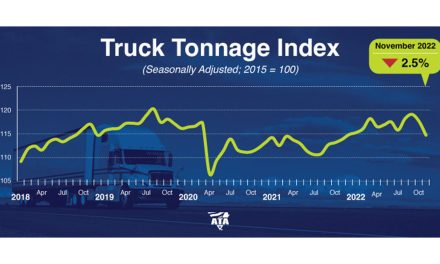Transportation Insight, a global, multi-modal enterprise logistics provider and end-to-end supply chain consultant, shares transportation compliance best practices for companies utilizing small package, less-than-truckload (LTL), truckload (TL) and international shipping lanes during the May Professional Development Meeting of the APICS Highlands Chapter in Algonquin, Illinois.
Transportation Insight Vice President of Client Solutions Rick Brumett leads the presentation’s focus on emerging trends in international trade compliance following the enactment of the Trade Facilitation and Trade Enforcement Act (TFTEA).
“With TFTEA enacted last year, Congress has authorized U.S. Customs and Border Protection (CBP) to aggressively pursue fines and penalties against importers and exporters with the goal of increased revenue collection,” Brumett says. “Transportation Insight is dedicated to helping mitigate this emerging layer of risk for manufacturers, retailers and distributors that import raw materials and/or finished goods into the U.S. and who export their products to foreign markets. We hope to share best practices of importers and exporters in reaction to Customs and Border Protection’s aggressive stance regarding trade compliance.”
Certified in international import/export trade compliance, Brumett has more than 35 years of logistics and retail supply chain experience. He is an expert in global trade, multi-modal transportation solutions and efficient warehouse design. Brumett is a Supply and Demand Chain Executive 2017 Pro to Know and has deep industry experience working with clients in retail, e-commerce, electronics, consumer packaged goods, manufacturing, food and grocery to reduce cycle times and achieve significant cost savings.
As U.S. CBP continues to assess importers’ capabilities to meet rules and regulations and aggressively pursue violators, companies face heightened risk for significant six-figure fines or retroactive duty imposition for failure to uphold trade compliance processes.
Trade compliance practices that were acceptable prior to TFTEA are no longer sufficient, Brumett says, adding that CBP’s use of enhanced automated technology grants the agency greater visibility into trade lanes than ever before. Compounding the urgency, all importers not involved in Trusted Trader programs are subject to compliance audits performed by CBP, which aims to complete a focused assessment audit for all non-exempt importers by 2020.
Transportation Insight Enterprise Account Manager William Claesen partners with Brumett, presenting information on trending topics in domestic transportation, including practices to protect speed to market, landed cost, customer satisfaction and profitability.



